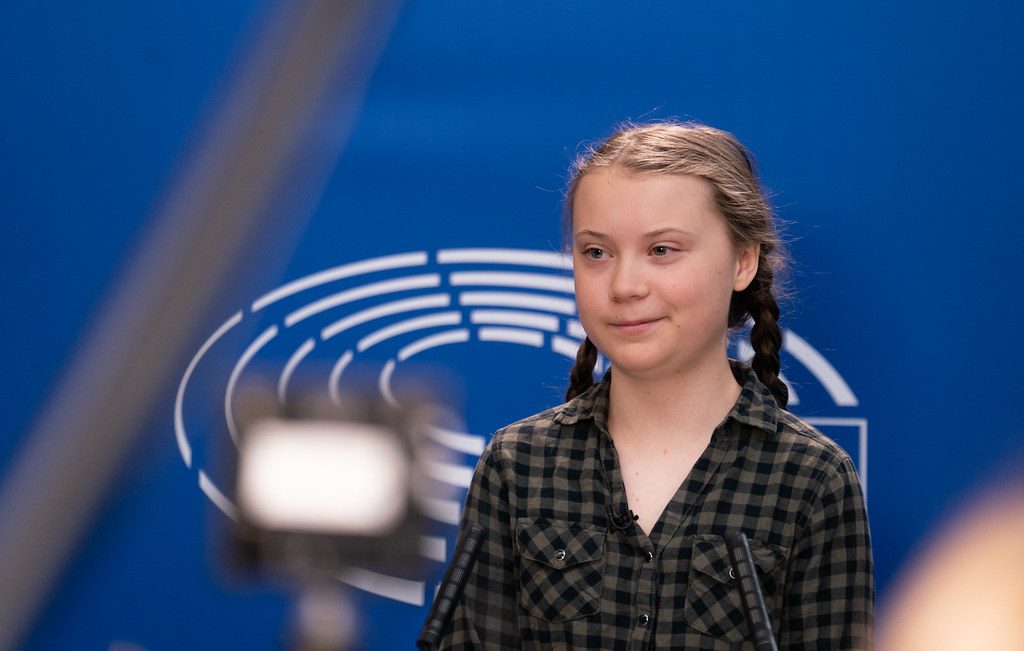Speaking before the United Nations’ Climate Action Summit, 16-year-old climate change activist Greta Thunberg delivered an impassioned chastisement to world leaders for their negligence and inaction concerning climate change. Her viral speech, viewed over 4 million times on YouTube, put Thunberg directly into the international spotlight on this issue and led to her being criticized by numerous people on the political right.
Regardless of the merits of her argument and ignoring the ongoing political and cultural debate about climate change, we can see that Thunberg has showed a determination to defend her convictions, turn her challenges into strengths and rise above the personal attacks and name-calling that has become far too common in modern politics. Those who have chosen to attack her personally rather than engage with her on the issue she cares about have shown that they would do well to step back and learn from her example.
After her speech at the UN, Thunberg was subjected to several attacks on social media and on television networks from conservative politicians and pundits. President Trump sarcastically tweeted, “She seems like a very happy young girl looking forward to a bright and wonderful future. So nice to see!”
Michael Knowles, a contributor for the Daily Wire, made an appearance on Fox News and said that Thunberg was a “mentally ill Swedish child who is being exploited by her parents and by the international left.” Thunberg has a form of high-functioning autism called Asperger’s syndrome, but in response to Knowles’ comment, the National Autistic Society clarified that “autism is not a mental health condition.” Fox News condemned Knowles’ comments in a statement and apologized to Thunberg and has not invited Knowles back onto their network. However, Knowles was not alone in making these types of attacks.
Others accused Thunberg of being indoctrinated into beliefs that she did not develop herself. Two notable public figures went so far as to compare her to children who were part of Nazi propaganda and communist reeducation.
Dinesh D’Souza published a picture of Thunberg next to a picture of a girl with a similar hairstyle standing in front of a German swastika and wrote, “Children – notably Nordic white girls with braids and red cheeks – were often used in Nazi propaganda.” Sebastian Gorka made a similar claim on Twitter, saying that her remarks were “disturbingly redolent of a victim of a Maoist ‘reeducation’ camp.” Neither D’Souza nor Gorka presented any evidence proving that Thunberg is a victim of indoctrination or is being used by others for disingenuous purposes.
Despite being confronted with personal attacks and false claims, Thunberg does not have a mental illness, nor has there been any evidence that she is being used by her parents or has been indoctrinated into her beliefs – she has risen above these attacks and shown what it means to stand by her beliefs in the face of unfounded and unfair criticism.
In response to the backlash she faced, Thunberg tweeted, “I honestly don’t understand why adults would choose to spend their time mocking and threatening teenagers and children for promoting science, when they could do something good instead. I guess they must simply feel so threatened by us.” Rather than stoop to personal attacks, Thunberg has remained committed to her cause and promoted her message. While some adults apparently have time to attack a teenager’s mental competence and motivations without evidence, Thunberg has remained devoted to her message.
Thunberg’s well-documented case of Asperger’s syndrome and obsessive-compulsive disorder makes her largely indifferent toward social cues and incentives and causes her to be intently focused on a single subject.
“Some people mock me for my diagnosis,” Thunberg said. “But Asperger is not a disease, it’s a gift. People also say that since I have Asperger I couldn’t possibly have put myself in this position. But that’s exactly why I did this … I was so frustrated that nothing was being done about the climate crisis and I felt like I had to do something, anything.”
Her genuine interest in making a difference can be seen most clearly in the way that she deflects attention from herself and focuses it on the issue of climate change. She told a German broadcaster, “I think there is a lot of focus on me as an individual and not on the climate itself. I think we should focus more on the climate issue because this is not about me.”
Thunberg has never shied away from engaging in debate and conversation about climate change at demonstrations, town hall gatherings and even on the floor of congressional committee meetings and the UN assembly. Her desire is to change minds and influence policy decisions to, in her view, save the planet. In a world of mudslinging, name-calling and political attacks, Thunberg has provided a valuable example of how to respond to attacks with dignity and grace.

Mariela Scollard
October 24, 2019
This is virtually the same as the ideas my collegues and I were talking about earlier in the morning during brunch.